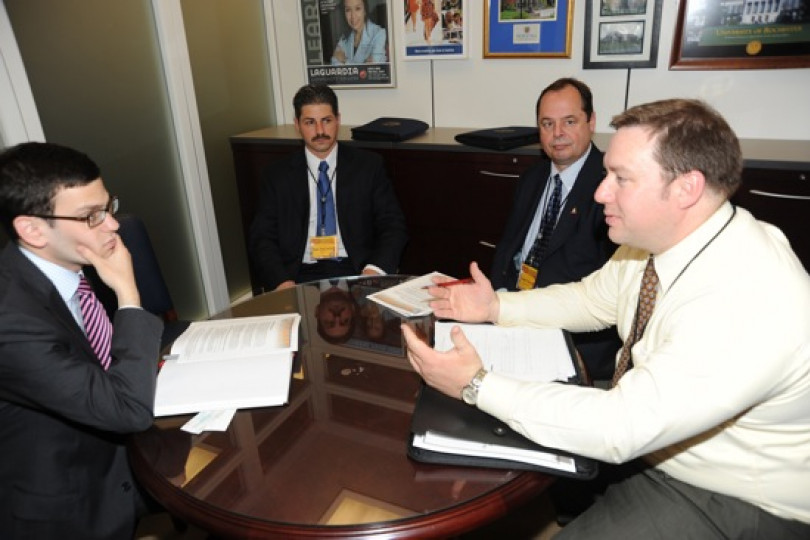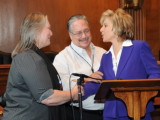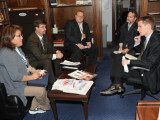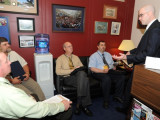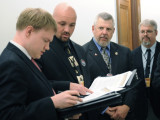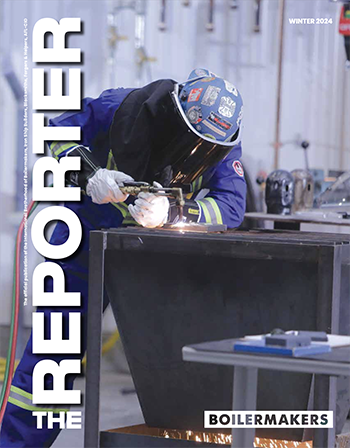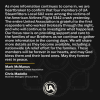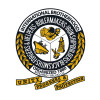Alex Levy, a legislative aide to Sen. Charles Schumer, left, listens as New York delegates discuss the Employee Free Choice Act. L. to r., Dan DeCarlo and Joe Brown, L-7, and Thomas Ryan, L-5.
View Photo Gallery (5 photos)
Some politicians appear cautious, others distant
THE WINDS OF politics can shift rapidly in Washington, as delegates lobbying Capitol Hill can attest. At last year’s LEAP conference, Boilermakers found that many pro-worker politicians had a discernible bounce in their step. And those who are traditionally less friendly to labor seemed more willing to listen to their union constituents.
But that was then — just months after the historic election of Barack Obama and congressional elections that left both houses of Congress firmly in the grasp of Democrats. Fast forward to this year’s conference, and things were quite different. Many delegates reported that Democrats took a cautious stance about the prospects of labor-friendly legislation moving forward while Republicans generally weren’t as approachable as last year.
So what changed? As International President Newton B. Jones observed, the Republican Party has voted no “in lockstep” on legislative initiatives sought by the Obama administration in order to deny the president any victories. Partisan rancor and gridlock have resulted. With mid-term elections looming in November, and heated rhetoric angering many voters, more than a few pro-labor politicians face tough races.
Despite the divisive political climate, Boilermaker delegates pressed ahead, urging lawmakers to move on key issues, especially support for American manufacturing, an energy and climate change policy, investments in shipbuilding, stronger worker protection laws, pension funding relief, and passage of the Employee Free Choice Act.
One issue from last year was noticeably absent — health care reform. Passing that legislation was a tortuous and protracted effort which proved that, even in a gridlocked Congress, progress is possible.
